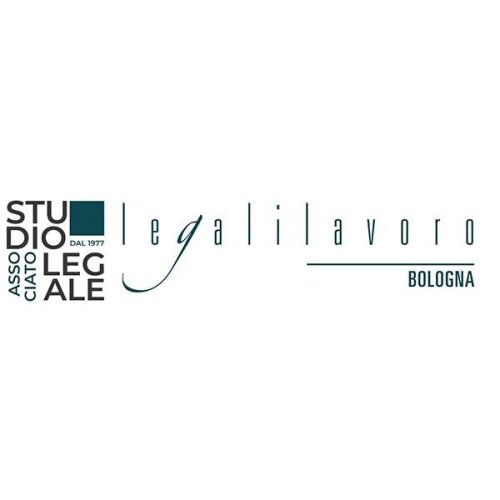Best Labor Law Lawyers in Bologna
Share your needs with us, get contacted by law firms.
Free. Takes 2 min.
List of the best lawyers in Bologna, Italy
About Labor Law in Bologna, Italy
Labor Law in Bologna, as in the rest of Italy, is designed to protect the rights of employees while maintaining a fair and productive work environment for employers. The framework for labor law comes from both national legislation and the regulations within the European Union (EU), which influence many aspects of employment, including contracts, working conditions, dispute resolutions, and workers' rights. Bologna, being a significant economic hub, follows these guidelines to ensure both employers and employees operate within a legal framework that promotes fairness and safety in the workplace.
Why You May Need a Lawyer
Individuals may seek legal advice in labor law for a variety of reasons. Common situations include disputes over employment contracts, wrongful termination claims, workplace harassment or discrimination, disputes related to wages and benefits, and understanding specific rights under employment law. Employers might also need legal assistance for drafting contracts, ensuring compliance with labor regulations, and handling complex HR issues. Lawyers specializing in labor law can provide guidance and representation to protect your interests adequately.
Local Laws Overview
Key aspects of labor law in Bologna include the regulation of employment contracts, collective bargaining agreements, notice periods for termination, and proper grounds for dismissal. Important provisions are in place to prevent discrimination based on gender, race, religion, or disability. Bologna also adheres to the national laws regarding working hours, minimum wage, and safety regulations in the workplace. Workers in Bologna benefit from strong protections related to parental leave, sick leave, and pensions.
Frequently Asked Questions
What are the normal working hours in Bologna, Italy?
In Bologna, as with the rest of Italy, the standard working week is 40 hours, usually spread over five or six days, depending on the sector. Overtime work is regulated and must be compensated appropriately.
Can an employer dismiss an employee without notice?
No, under Italian law, an employer must provide notice before dismissing an employee unless there is just cause, such as gross misconduct. The notice period required depends on the length of service and the contractual agreements.
Is it mandatory for employers to provide a written contract?
Yes, Italian law requires that all employment relationships be documented in a written contract that outlines the conditions and terms of employment, including the role, salary, working hours, and other relevant conditions.
How does collective bargaining influence labor conditions in Bologna?
Collective bargaining agreements (CBAs) often set industry-specific standards for wages, hours, and other employment conditions, providing regulations that can be more favorable than the national law for employees.
What steps should I take if I experience workplace discrimination?
If you experience discrimination, it's advisable to document all relevant incidents and seek legal advice to understand your rights and the steps necessary to address the issue through appropriate legal channels.
Are there specific laws protecting workplace safety?
Yes, several laws ensure workplace safety, including mandatory risk assessments and ensuring safety equipment and trainings are provided to all employees.
What is the legal framework for maternity and paternity leave?
Italy provides robust maternity and paternity leave policies, allowing significant time off with benefits. Mothers are generally entitled to five months, while fathers have shorter, but more flexible options.
Are employment laws different for part-time employees?
Part-time employees are entitled to the same rights and protections as full-time employees, although specific details such as working hours may vary.
What benefits are employers required to provide?
Employers must provide minimum wage, contribute to social security, and ensure leave entitlements, including vacation and sick leave. Additional benefits like health insurance may be included based on the contract or CBA.
How are disputes generally resolved in Bologna?
Most labor disputes in Bologna can be resolved through negotiation and mediation, but if these fail, litigation in labor courts may be necessary to reach a resolution.
Additional Resources
For further assistance or information regarding labor law, individuals can refer to governmental bodies such as the Ministry of Labour and Social Policies, trade unions, and employment law specialized associations. These entities provide resources, guidance, and support for understanding and navigating labor laws effectively.
Next Steps
If you need legal assistance, consider contacting a labor law attorney who is familiar with local laws in Bologna. The first step is usually to schedule a consultation to discuss your specific situation, review your rights, and explore possible legal remedies. Mutual understanding and clear communication with legal professionals ensure the best possible outcome for your particular case.
Lawzana helps you find the best lawyers and law firms in Bologna through a curated and pre-screened list of qualified legal professionals. Our platform offers rankings and detailed profiles of attorneys and law firms, allowing you to compare based on practice areas, including Labor Law, experience, and client feedback.
Each profile includes a description of the firm's areas of practice, client reviews, team members and partners, year of establishment, spoken languages, office locations, contact information, social media presence, and any published articles or resources. Most firms on our platform speak English and are experienced in both local and international legal matters.
Get a quote from top-rated law firms in Bologna, Italy — quickly, securely, and without unnecessary hassle.
Disclaimer:
The information provided on this page is for general informational purposes only and does not constitute legal advice. While we strive to ensure the accuracy and relevance of the content, legal information may change over time, and interpretations of the law can vary. You should always consult with a qualified legal professional for advice specific to your situation.
We disclaim all liability for actions taken or not taken based on the content of this page. If you believe any information is incorrect or outdated, please contact us, and we will review and update it where appropriate.













